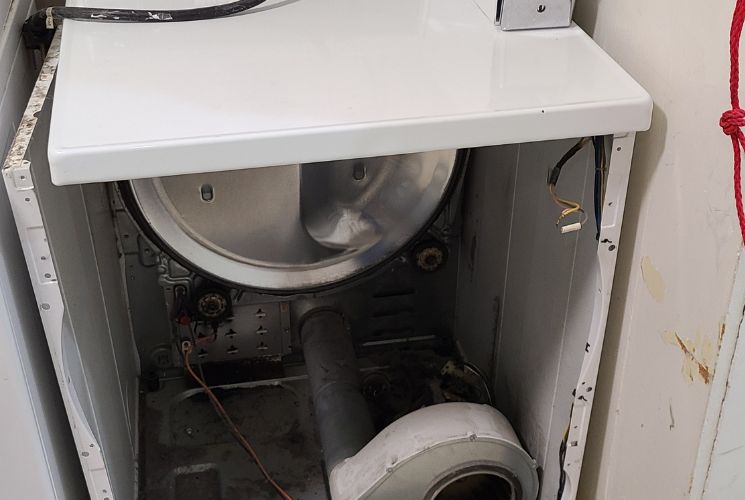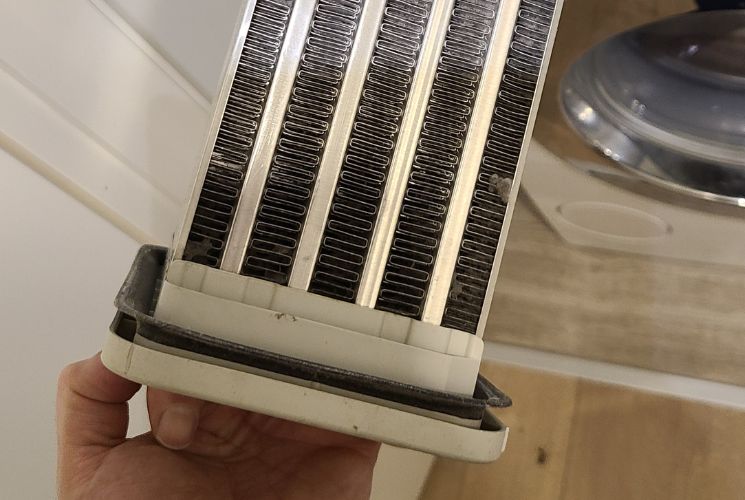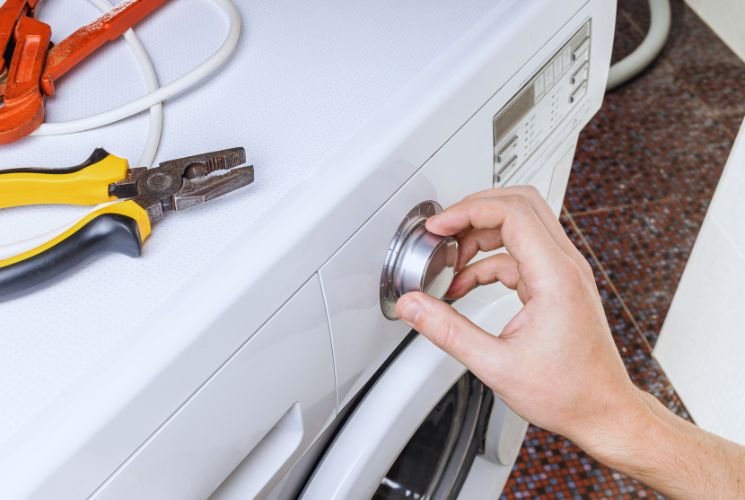Is It Better to Repair or Replace an Appliance?
When an appliance in your home breaks down, it can disrupt your daily routine and create unexpected stress. Your refrigerator might stop cooling just as your weekly groceries arrive, your washing machine might refuse to spin in the middle of laundry day, or your dishwasher might leave dishes dirty even after a full cycle. At that moment, every homeowner asks the same question: should I repair this appliance, or is it time to replace it?
Making the wrong choice can lead to wasted money, repeated repairs, and continued frustration. Fortunately, there are practical ways to decide, including the 50 percent rule, understanding typical appliance lifespans, and recognizing the signs that an appliance is past its prime. In this guide, we’ll break everything down and help you make the smartest decision for your home and budget.
The 50 Percent Rule: A Simple Way to Decide
One of the most useful rules for deciding whether to repair or replace a major appliance is the 50 percent rule. This rule is simple:
If the cost of repairing an appliance is more than 50 percent of what it would cost to buy a new one- and the appliance is already past the midpoint of its expected lifespan- it is usually better to replace it.
For example, imagine your 12-year-old dishwasher suddenly stops draining, and the repair estimate comes to $350. Given its age, it is likely that other parts may fail soon, making replacement the better long-term investment. On the other hand, if a three-year-old washing machine has a minor issue that costs $120 to fix, repairing it is probably the smarter choice.
The 50 percent rule helps prevent homeowners from throwing money into appliances that may only provide temporary relief, which is especially useful when deciding about high-ticket items like refrigerators, ovens, and washers.

Typical Lifespans of Household Appliances
Understanding how long an appliance is expected to last makes it easier to know when replacement is the wiser choice. Here are average lifespans for common household appliances:
| Appliance | Average Lifespan |
|---|---|
| Refrigerator | 10 to 15 years |
| Dishwasher | 7 to 12 years |
| Washing Machine | 8 to 12 years |
| Dryer | 10 to 13 years |
| Oven / Range | 13 to 20 years |
| Microwave | 7 to 10 years |
Common Appliance Problems and Repair Considerations
Sometimes it’s easier to decide based on the type of problem your appliance is experiencing. Here are some typical issues:
- Refrigerators: Leaking water, not cooling properly, loud humming, or failing ice makers. Minor issues like a clogged defrost drain can be repaired, but major problems with compressors can cost hundreds.
- Dishwashers: Dishes not coming out clean, water pooling at the bottom, or broken racks. Replacing a faulty pump may be worthwhile if the appliance is newer, but if it’s over 10 years old, replacement is often smarter.
- Washing Machines: Not spinning, water leaks, strange noises, or electronic control failure. Fixing belts or clogged hoses is usually inexpensive, but repeated electronic failures in older machines may justify replacement.
- Dryers: Failing to heat, noisy operation, or drum issues. Minor repairs are common, but older dryers can become inefficient and dangerous if heating elements fail.
Considering the nature of the problem alongside age and repair cost can help you avoid repeated repairs that add up over time.
Energy Efficiency and Hidden Costs
Older appliances often consume more electricity and water than newer models. Even if the repair is cheap, continuing to operate an inefficient refrigerator or washer can lead to higher energy bills. For example:
- A 12-year-old refrigerator may use twice as much electricity as a modern ENERGY STAR-rated model.
- Older washing machines often use more water and longer cycles, adding to utility costs.
Replacing an appliance with a new, energy-efficient model can save money over time and reduce your household’s carbon footprint. This is an important factor to consider when deciding between repair and replacement.
Maintenance Tips to Extend Appliance Lifespan
Regular maintenance can extend the lifespan of appliances so you do not have to repair or replace them early. Below are a few tips for appliance maintenance:
- Regular cleaning: Clogged refrigerator coils, washing machine drains, dishwasher filters, and dryer vents can reduce the efficiency of your appliances and lead to maintenance issues.
- Avoid overloading: Avoid overloading washing machines or dishwashers, as this can create excess strain on the motor and/or pump.
- Inspection: Regularly inspect the hoses, belts, and seals in your appliances for age-related wear.
- Repairs: Be proactive in addressing minor repairs so they don’t develop into bigger repair problems.
Taking some time for regular maintenance can save hundreds of dollars in repairs and can extend the lifespan of appliances.

How to Decide: Repair or Replace
Instead of separating repair and replacement into multiple decisions, consider these key factors together:
- Age of the appliance: Newer appliances are usually worth repairing; older ones may be better replaced.
- Repair cost: Repairs that exceed 50 percent of a new appliance’s cost are often better replaced.
- Frequency of problems: Appliances requiring multiple repairs in a short period should be replaced.
- Energy efficiency: Older appliances can cost more in utility bills, making replacement a smart investment.
- Availability of parts: If parts are hard to find or expensive, replacement is more practical.
- Warranty coverage: Appliances under warranty or with affordable repairs are worth fixing.
Using these factors together allows homeowners to decide whether it is worth repairing an appliance like a dishwasher or washing machine, or replacing an old refrigerator or dryer.
When in Need of a Repair…
Deciding whether to repair or replace an appliance does not need to be stressful. By applying the 50 percent rule, understanding appliance lifespans, considering repair costs, and evaluating energy efficiency, homeowners can make informed decisions. This approach not only saves money but also ensures that your appliances continue to operate efficiently, keeping your household running smoothly.
When you need an appliance repaired, ASAP is ready to help. Our highly skilled technicians can quickly diagnose problems and provide reliable appliance repair.


